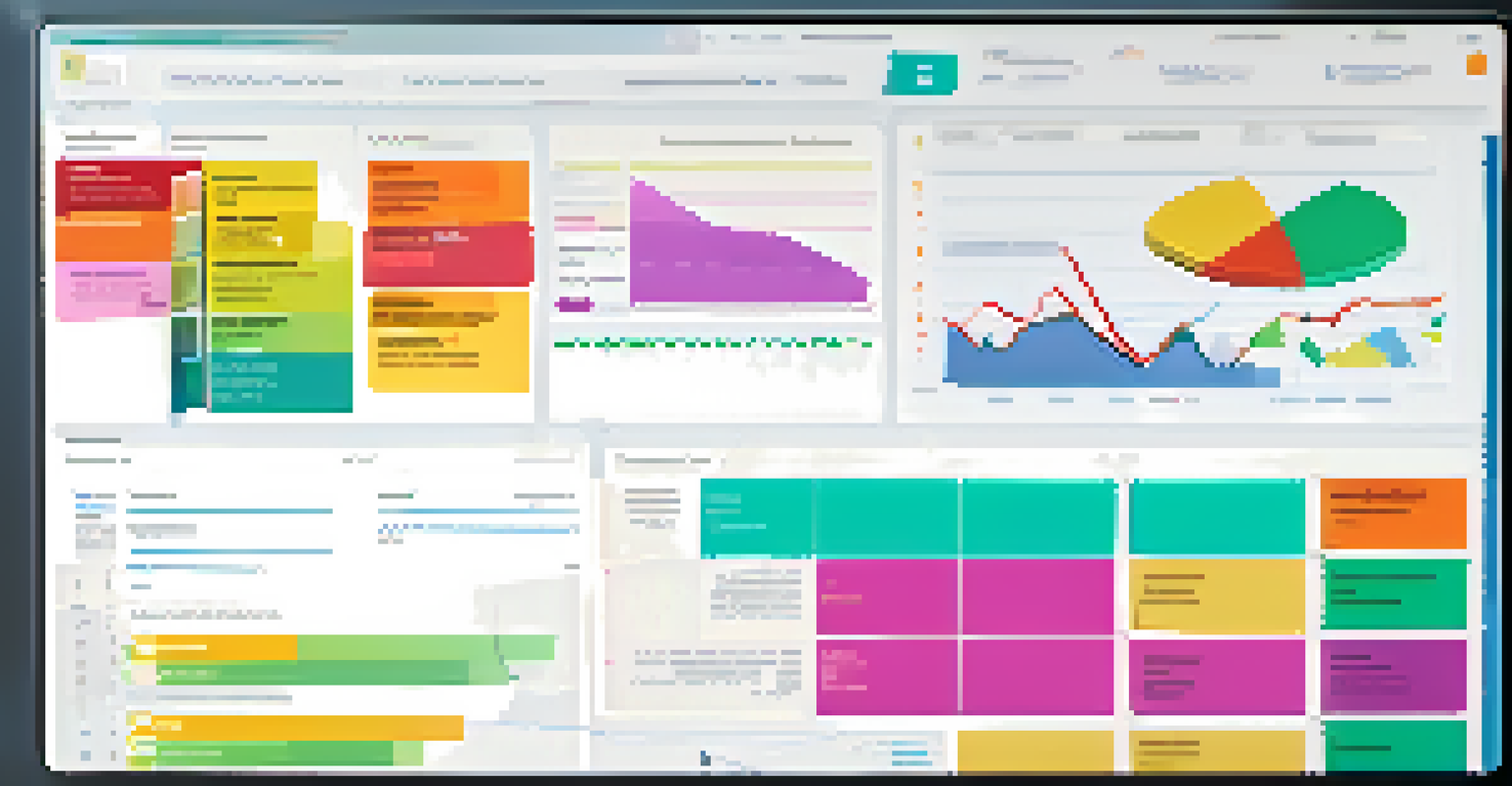DevOps and Compliance: Navigating Regulatory Challenges

Understanding DevOps and Its Role in Compliance
DevOps is a methodology that combines software development (Dev) and IT operations (Ops) to improve collaboration and productivity. By fostering a culture of shared responsibility, DevOps enables teams to deliver high-quality software rapidly. This rapid delivery can sometimes clash with regulatory requirements, creating a complex landscape where compliance must be carefully navigated.
The only way to win is to learn faster than anyone else.
To effectively manage this, it's crucial to understand the specific regulations that apply to your industry, whether it's GDPR, HIPAA, or PCI-DSS. These regulations demand high standards for data security and privacy, which can pose challenges for fast-paced DevOps environments. Thus, aligning DevOps practices with compliance requirements is not just beneficial—it's essential for avoiding legal pitfalls.
Ultimately, embracing DevOps with a compliance mindset can lead to greater agility and resilience. Organizations can innovate while adhering to necessary regulations, making it possible to stay competitive without sacrificing security or compliance. This balance is key to navigating the evolving regulatory landscape.
Key Regulatory Challenges DevOps Teams Face
One of the main challenges DevOps teams encounter is the constantly changing nature of regulations. This dynamism can make it difficult to keep compliance processes updated and relevant. For instance, a new data protection law might require immediate changes to software deployment cycles, which can disrupt established workflows.

Another challenge is the integration of compliance checks into the continuous delivery pipeline. Many teams may find it difficult to incorporate audits or security checks without slowing down their deployment processes. This is where automation can play a vital role, allowing compliance checks to occur seamlessly within the pipeline, ensuring that regulatory standards are met without sacrificing speed.
DevOps Must Align with Compliance
Integrating compliance into DevOps practices is essential to navigate regulatory challenges while maintaining agility.
Lastly, the sheer volume of regulations across different regions can overwhelm teams. Organizations operating internationally must juggle multiple compliance frameworks, each with its own requirements. This complexity necessitates a robust strategy to ensure that all regulatory aspects are covered, promoting a culture of compliance within the DevOps environment.
Implementing Compliance as Code in DevOps
Compliance as Code is an emerging concept that allows organizations to automate compliance processes within their DevOps workflows. By treating compliance requirements as code, teams can version-control their compliance policies and integrate them into their CI/CD pipelines. This ensures that every deployment adheres to regulatory standards without additional manual intervention.
Automation is not only about technology but about the process improvement it brings to the organization.
For example, using Infrastructure as Code (IaC) tools like Terraform or AWS CloudFormation, teams can define their compliance requirements alongside their infrastructure configurations. This not only enhances security but also allows for immediate feedback on compliance status during the development process, reducing the likelihood of human error.
Moreover, implementing compliance as code fosters a culture of accountability within teams. Everyone is aware of the compliance requirements upfront, and through automated checks, they can see how their work aligns with regulatory standards. This transparency helps to simplify audits and enhances overall trust in the software delivery process.
The Importance of Collaboration Between Teams
In the world of DevOps, collaboration is key. To effectively navigate compliance challenges, it's essential for development, operations, and compliance teams to work closely together. This collaboration helps to bridge the gap between regulatory requirements and technical implementation, ensuring that everyone is on the same page.
Regular meetings and open lines of communication can facilitate the sharing of insights and best practices related to compliance. For instance, compliance teams can provide developers with guidance on regulatory requirements, while developers can offer insights on how to implement these requirements in a practical and efficient manner.
Automation Enhances Compliance Efforts
Leveraging automation for compliance checks minimizes manual errors and streamlines adherence to regulations.
This collaborative approach not only enhances compliance but also fosters a culture of shared responsibility. When all teams understand their roles in the compliance process, it becomes a collective effort rather than a burden, ultimately leading to better outcomes for the organization.
Leveraging Automation for Compliance Management
Automation is a game-changer for managing compliance in a DevOps environment. By automating compliance checks and audits, organizations can significantly reduce the manual workload associated with ensuring regulatory adherence. This not only saves time but also minimizes the risk of human error, which can lead to costly compliance violations.
Tools such as security scanning software and automated reporting systems can help teams stay on top of compliance requirements. For example, automated vulnerability assessments can identify potential security issues before they become problematic, allowing teams to address them proactively. This proactive approach is crucial for maintaining compliance in a fast-paced development environment.
Ultimately, leveraging automation not only streamlines compliance management but also enhances overall efficiency within the DevOps process. By freeing up resources that would otherwise be spent on manual checks, teams can focus on innovation and delivering value to their customers.
Training and Awareness for Compliance in DevOps
Training and awareness are vital components of successful compliance in a DevOps environment. It's important for all team members to understand the regulatory landscape and the specific compliance requirements relevant to their work. Regular training sessions can help keep everyone informed about changes in regulations and best practices for compliance.
In addition, creating a culture of compliance awareness can empower team members to take ownership of their role in the process. When employees recognize the significance of compliance, they are more likely to prioritize it in their daily tasks, leading to a more compliant organization overall. This can be as simple as sharing updates during team meetings or providing access to informative resources.
Collaboration Drives Compliance Success
Effective collaboration between development, operations, and compliance teams fosters a culture of shared responsibility.
By fostering an environment where compliance is seen as a shared responsibility rather than an afterthought, organizations can reduce the risk of non-compliance. Training and awareness initiatives can ultimately lead to better adherence to regulations and a stronger commitment to ethical practices within the company.
Measuring Compliance Success in DevOps
To ensure that compliance efforts are effective, it's essential to measure success through key performance indicators (KPIs). These metrics can help organizations identify areas for improvement and gauge the effectiveness of their compliance strategies. Common KPIs might include the number of compliance issues identified, time taken to resolve these issues, and the frequency of audits.
Another important aspect of measuring compliance success is feedback from both internal and external stakeholders. Gathering input from team members and regulatory bodies can provide valuable insights into how well compliance practices are being implemented. This feedback loop helps organizations make necessary adjustments and continuously improve their compliance processes.

Ultimately, measuring compliance success not only ensures adherence to regulations but also demonstrates a commitment to transparency and accountability. By regularly assessing compliance efforts, organizations can build trust with stakeholders and create a culture of continuous improvement that enhances their overall DevOps practices.